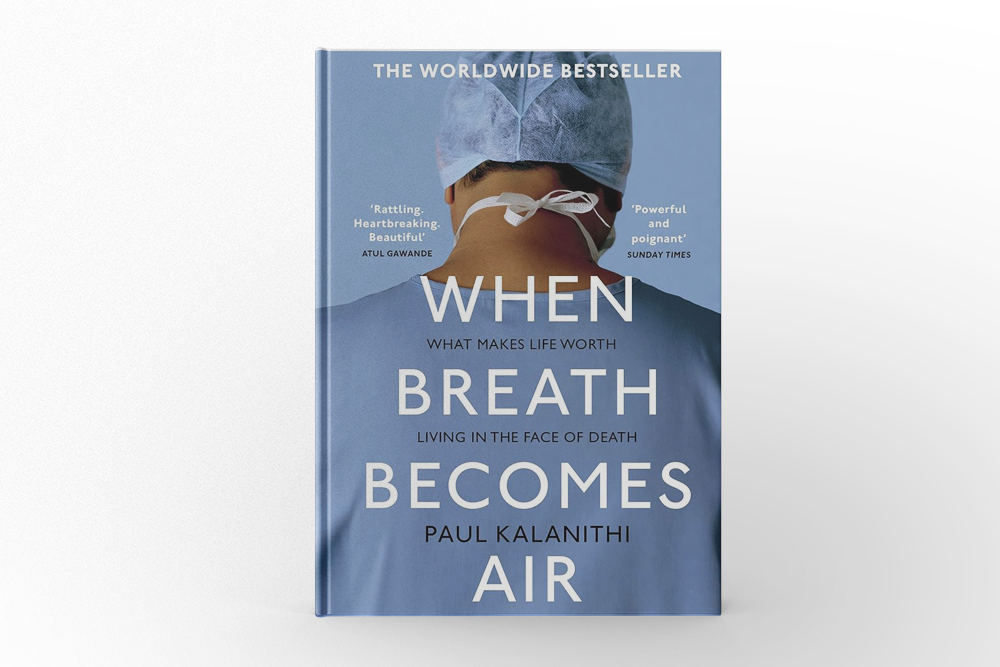“When Breath Becomes Air” by Paul Kalanithi is a poignant memoir that explores the intersection of life, death, and the pursuit of meaning. This deeply moving book captures Kalanithi’s journey from a neurosurgeon to a patient diagnosed with terminal lung cancer.
Author’s Background
Paul Kalanithi was a brilliant neurosurgeon and writer. Born in New York and raised in Arizona, Kalanithi pursued degrees in English literature, human biology, and history and philosophy of science and medicine before attending medical school at Yale. His diverse academic background and passion for literature deeply influenced his approach to medicine and writing.
In Depth Summary
“When Breath Becomes Air” is divided into two parts. The first part, “In Perfect Health I Begin,” chronicles Kalanithi’s early life, his academic pursuits, and his journey to becoming a neurosurgeon. Kalanithi’s love for literature and his quest to understand the meaning of life are evident throughout this section. He grapples with the philosophical questions of what makes life worth living and how one can find meaning in the face of mortality.
Kalanithi’s dedication to neurosurgery is vividly portrayed as he describes the grueling training and the profound responsibility of holding a patient’s life in his hands. His reflections on the doctor-patient relationship and the ethical dilemmas faced in the medical field provide deep insights into the human condition.
The second part, “Cease Not till Death,” begins with Kalanithi’s diagnosis of stage IV lung cancer. The narrative shifts from his role as a doctor to that of a patient. Kalanithi’s writing becomes more introspective as he confronts his mortality and the impact of his illness on his identity and relationships. He shares the emotional and physical challenges of undergoing treatment while trying to maintain a sense of normalcy.
Throughout the book, Kalanithi’s wife, Lucy, plays a significant role. Her unwavering support and their decision to have a child despite his prognosis add layers of complexity and hope to the narrative. Kalanithi’s reflections on fatherhood and the legacy he wishes to leave behind are deeply touching.
Themes and Insights
“When Breath Becomes Air” delves into several profound themes. One of the central themes is the search for meaning in life and death. Kalanithi’s journey is a testament to the human spirit’s resilience and the quest for purpose, even in the face of terminal illness.
Another significant theme is the duality of being a doctor and a patient. Kalanithi’s unique perspective provides valuable insights into the medical profession and the emotional toll it takes on both doctors and patients. His reflections on empathy, compassion, and the importance of human connection in medicine are particularly poignant.
The book also explores the concept of time and how it shapes our lives. Kalanithi’s awareness of his limited time left leads him to reflect on how to live meaningfully and make the most of every moment. His writing encourages readers to contemplate their own lives and the legacy they wish to leave behind.
Personal Reflections
Reading “When Breath Becomes Air” is an emotional and transformative experience. Kalanithi’s eloquent prose and raw honesty make the reader feel intimately connected to his journey. The book is a powerful reminder of the fragility of life and the importance of cherishing every moment.
Kalanithi’s reflections on his dual roles as a doctor and a patient resonate deeply, offering a unique perspective on the medical profession. His courage in facing his illness and his determination to find meaning in his final days are both inspiring and humbling.
Recommendation
“When Breath Becomes Air” is a must-read for anyone interested in medicine, philosophy, or the human experience. Kalanithi’s writing is both intellectually stimulating and emotionally moving. The book serves as a profound meditation on life, death, and the pursuit of meaning.
Impact and Legacy
The impact of “When Breath Becomes Air” extends far beyond its pages. The book has touched the hearts of millions of readers worldwide and has sparked important conversations about mortality, empathy, and the human condition. Kalanithi’s legacy lives on through his writing and the lives he touched as a doctor.
The book has also brought greater awareness to lung cancer and the challenges faced by those diagnosed with terminal illnesses. Kalanithi’s story has inspired many to pursue careers in medicine and to approach their work with compassion and empathy.
Conclusion
“When Breath Becomes Air” is more than just a memoir; it is a profound exploration of what it means to live and die with dignity. Paul Kalanithi’s eloquent storytelling and deep reflections on life and death make this book a timeless and essential read. This review of “When Breath Becomes Air” highlights the enduring impact of Kalanithi’s journey and the powerful lessons it imparts.
